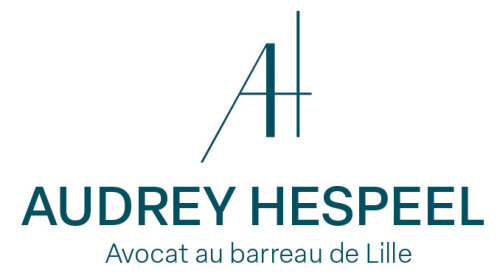Best Child Custody Lawyers in Tourcoing
Share your needs with us, get contacted by law firms.
Free. Takes 2 min.
Free Guide to Hiring a Family Lawyer
List of the best lawyers in Tourcoing, France
About Child Custody Law in Tourcoing, France
Child custody law in Tourcoing, France, is governed by national French family law, which seeks to protect the best interests of the child. When parents separate, custody arrangements can be either shared or sole, decided upon by mutual agreement or, if necessary, through a court ruling. Shared custody, also known as joint custody, is the most common arrangement encouraged by the French legal system because it allows children to maintain strong relationships with both parents.
Why You May Need a Lawyer
Several situations might necessitate the need for legal assistance in the realm of child custody in Tourcoing, France. Common scenarios include disputes over custody arrangements, disagreements about relocation, modifications of existing custody agreements, or in cases where there are concerns about the child’s welfare. A lawyer can also assist in negotiations, legal representation in court, and understanding the complex procedures and documentation involved.
Local Laws Overview
Child custody laws in Tourcoing, as part of the French legal framework, emphasize child welfare and offer various options to resolve custody disputes. French family law allows for amicable agreements between parents or judicial intervention if an agreement isn't possible. The local legal system supports co-parenting and shared responsibilities post-divorce or separation, and the judge evaluates several factors such as the parents' living situations, the child's academic and social environment, and parental cooperation before making any decisions.
Frequently Asked Questions
What is the difference between shared and sole custody?
Shared custody means both parents have significant responsibility for the child's upbringing, usually with the child spending time at each parent's residence. Sole custody gives one parent full responsibility over the child’s daily life, though the other parent may have visitation rights.
How is child custody determined in cases of divorce?
In cases of divorce, the custody arrangements can be made through mutual consent or decided by a family court judge based on the child's best interests, considering factors like stability, parental cooperation, and the child's welfare.
Can custody agreements be changed?
Yes, custody agreements can be modified if there has been a significant change in circumstances that affects the child’s best interests. This often requires revisiting court orders or agreements with the assistance of a lawyer.
Are grandparents entitled to visitation rights?
Under French law, grandparents have the right to maintain a relationship with their grandchildren. They can petition the court for visitation rights if necessary.
What if one parent wants to relocate with the child?
If one parent wishes to move to another location with the child, they must seek the other parent's consent or, failing that, request court permission. The court will consider the child's best interests and the impact of the move before making a decision.
How does mediation work in custody disputes?
Mediation involves a neutral third-party facilitating discussions between the parents to help reach a mutual agreement regarding custody. It is a less adversarial approach and is often recommended before resorting to court proceedings.
Can I represent myself in a custody case?
While self-representation is possible, it is often not advisable due to the complexities of family law and the potential emotional involvement in such cases. Having professional legal representation can help ensure that your case is presented effectively.
What role does the child's opinion play in custody decisions?
The child's opinion may be considered by the court, especially if the child is of a certain age and maturity. However, the final decision is based on the best interest of the child rather than their preference alone.
Is domestic violence considered in custody cases?
Yes, allegations of domestic violence are taken very seriously in custody proceedings. The court prioritizes the safety and well-being of the child and the non-abusive parent when determining custody arrangements.
What documentation is required for a custody case?
Documentation might include proof of residence, employment records, child’s education and healthcare records, and any documented communications between parents regarding custody. A lawyer can help ensure that all necessary documents are prepared for the case.
Additional Resources
For further assistance, individuals can contact the Tribunal Judiciaire (Judicial Court) in Tourcoing, the local family law legal aid services, or organizations such as the French Family Association (Union Départementale des Associations Familiales - UDAF) which provides support and advice for families.
Next Steps
If you need legal assistance in child custody matters in Tourcoing, it is advisable to consult with a lawyer specializing in family law. Begin by gathering all pertinent information and documentation related to your case. Consider seeking initial consultations with several lawyers to find one that fits your needs. Reach out to local resources and explore mediation as a collaborative dispute resolution method. Taking these proactive steps can help ensure that your child’s best interests are effectively represented and protected.
Lawzana helps you find the best lawyers and law firms in Tourcoing through a curated and pre-screened list of qualified legal professionals. Our platform offers rankings and detailed profiles of attorneys and law firms, allowing you to compare based on practice areas, including Child Custody, experience, and client feedback.
Each profile includes a description of the firm's areas of practice, client reviews, team members and partners, year of establishment, spoken languages, office locations, contact information, social media presence, and any published articles or resources. Most firms on our platform speak English and are experienced in both local and international legal matters.
Get a quote from top-rated law firms in Tourcoing, France — quickly, securely, and without unnecessary hassle.
Disclaimer:
The information provided on this page is for general informational purposes only and does not constitute legal advice. While we strive to ensure the accuracy and relevance of the content, legal information may change over time, and interpretations of the law can vary. You should always consult with a qualified legal professional for advice specific to your situation.
We disclaim all liability for actions taken or not taken based on the content of this page. If you believe any information is incorrect or outdated, please contact us, and we will review and update it where appropriate.









